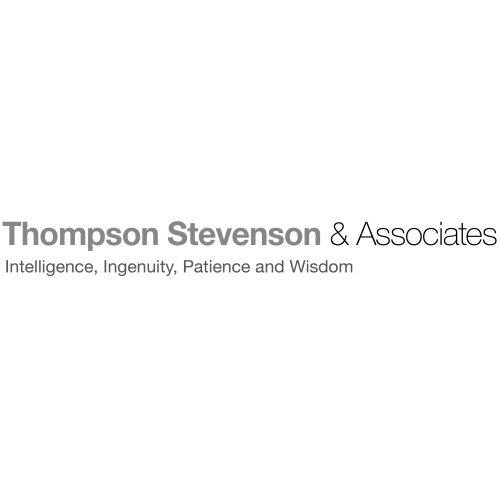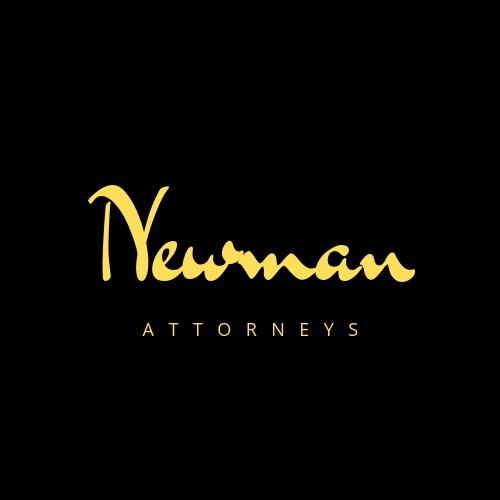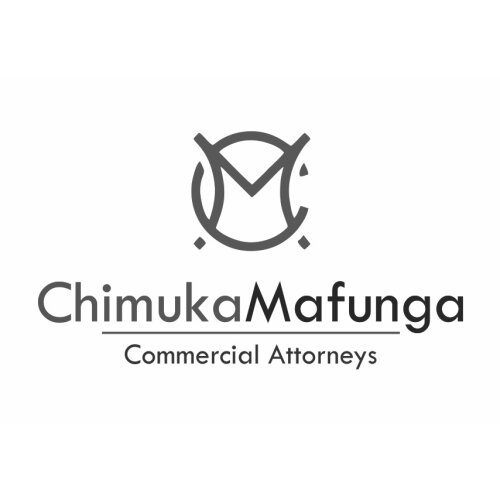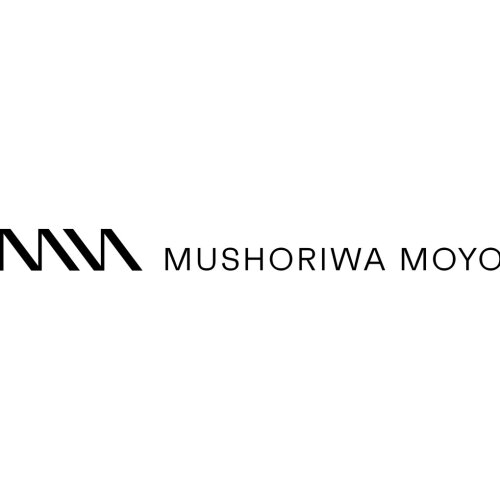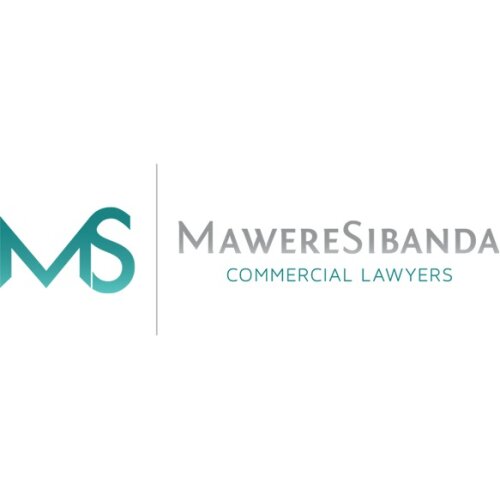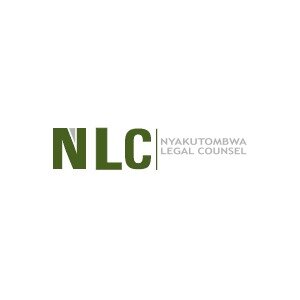Best Water Law Lawyers in Harare
Share your needs with us, get contacted by law firms.
Free. Takes 2 min.
List of the best lawyers in Harare, Zimbabwe
About Water Law in Harare, Zimbabwe
Water Law in Harare, Zimbabwe, governs the ownership, management, use, and conservation of water resources. The main piece of legislation guiding water usage in Zimbabwe is the Water Act [Chapter 20:24], which came into force in 1998. This law recognizes water as a valuable national asset, ensures its sustainable use for present and future generations, and sets out clear rules for the allocation and protection of water resources. Water Law affects individuals, companies, farmers, communities, and local authorities, making it a significant area of legal concern in both urban and rural settings in Harare.
Why You May Need a Lawyer
You may need the assistance of a lawyer who specializes in Water Law in several situations, including disputes over water rights, compliance with licensing requirements, environmental concerns, commercial exploitation of water sources, or alleged illegal water use. Lawyers can also help with drafting water use agreements, negotiating water allocation among stakeholders, addressing water pollution issues, and representing clients in hearings before regulatory bodies. If you face challenges involving access to water, enforcement of water regulations, or penalties for non-compliance, a legal expert can help protect your interests and guide you through the complex legal and regulatory processes.
Local Laws Overview
The Water Act [Chapter 20:24] is the primary legislation in Zimbabwe governing water rights and use. Some key aspects relevant to Harare include:
- All surface and underground water is vested in the State, to be held in trust for the public.
- Water use for domestic purposes typically does not require a permit, but commercial or industrial use does.
- The Zimbabwe National Water Authority (ZINWA) is the main regulatory body overseeing water management, allocation, and quality.
- Any construction or use of dams, boreholes, or other water works requires prior approval from ZINWA.
- Penalties apply for unlawful water abstraction, pollution of water sources, or failure to comply with regulatory requirements.
- The Act provides for the creation of Catchment Councils, which manage water resources at regional levels.
- The Environmental Management Act also influences water use by setting pollution standards and requiring environmental impact assessments for major projects.
Frequently Asked Questions
What is the legal status of water in Zimbabwe?
Under the Water Act, all water resources in Zimbabwe are held by the State in trust for the people. No individual or entity can claim private ownership of water itself.
Do I need a permit to use water from a river or borehole?
Permit requirements depend on intended use. Small-scale domestic use usually does not require a permit, but commercial, industrial, or large-scale agricultural use will need prior authorization from ZINWA.
Who regulates water supplies and usage in Harare?
The Zimbabwe National Water Authority (ZINWA) is responsible for regulation, while the Harare City Council operates the city’s municipal water services. Catchment Councils manage specific water bodies in various regions.
Can my water supply be disconnected?
Yes. If you fail to pay for municipal water, or if you use water unlawfully, the authorities can disconnect your supply. However, there are legal processes involved, and you have the right to challenge improper disconnection.
What should I do about water pollution from a neighbor or company?
You can report the matter to ZINWA, the Environmental Management Agency (EMA), or your local authority. Legal action may also be necessary, and a lawyer can help you seek remedies and compensation.
Is rainwater harvesting allowed in Harare?
Rainwater harvesting for domestic use is generally allowed and encouraged as a supplementary water source. For commercial scale harvesting, it is best to check if any approvals from authorities are required.
What penalties exist for illegal water use?
Penalties under the Water Act and municipal by-laws can include fines, disconnection of supply, or even criminal prosecution in severe cases.
How can I resolve a water dispute with my neighbor?
Many water-related disputes can be resolved through negotiation or mediation. However, if necessary, you can approach the Catchment Council, ZINWA, or the courts for a formal resolution.
Can businesses purchase additional water allocations?
Businesses may apply to ZINWA for water rights or extra allocations, subject to availability and compliance with requirements. Water rights are not sold outright but are issued as entitlements for specific purposes and periods.
What is the process to drill a borehole in Harare?
To drill a borehole, you must obtain approval from ZINWA and the Harare City Council. The process often requires an assessment of water impact, compliance with health and safety standards, and payment of relevant fees.
Additional Resources
If you require more information or need legal assistance, the following resources may help:
- Zimbabwe National Water Authority (ZINWA) offices in Harare
- Harare City Council Water Department
- Environmental Management Agency (EMA)
- Ministry of Environment, Water and Climate
- Zimbabwe Lawyers for Human Rights and other local legal NGOs
- Catchment and Sub-catchment Councils specific to Harare region
- Legal Aid Directorate for government-supported legal advice
Next Steps
If you suspect your water rights have been infringed, face penalties, or wish to prevent legal problems related to water use in Harare, your first step should be to gather all relevant documents and facts, such as permits, bills, contracts, and correspondence. Prepare a detailed account of your issue and consult a lawyer who specializes in Water Law. Many lawyers offer an initial consultation to assess your case and explain your rights and obligations. You may also visit ZINWA or your local council offices for guidance before taking legal steps. Acting early can help resolve issues quickly and protect your access to this essential resource.
Lawzana helps you find the best lawyers and law firms in Harare through a curated and pre-screened list of qualified legal professionals. Our platform offers rankings and detailed profiles of attorneys and law firms, allowing you to compare based on practice areas, including Water Law, experience, and client feedback.
Each profile includes a description of the firm's areas of practice, client reviews, team members and partners, year of establishment, spoken languages, office locations, contact information, social media presence, and any published articles or resources. Most firms on our platform speak English and are experienced in both local and international legal matters.
Get a quote from top-rated law firms in Harare, Zimbabwe — quickly, securely, and without unnecessary hassle.
Disclaimer:
The information provided on this page is for general informational purposes only and does not constitute legal advice. While we strive to ensure the accuracy and relevance of the content, legal information may change over time, and interpretations of the law can vary. You should always consult with a qualified legal professional for advice specific to your situation.
We disclaim all liability for actions taken or not taken based on the content of this page. If you believe any information is incorrect or outdated, please contact us, and we will review and update it where appropriate.





